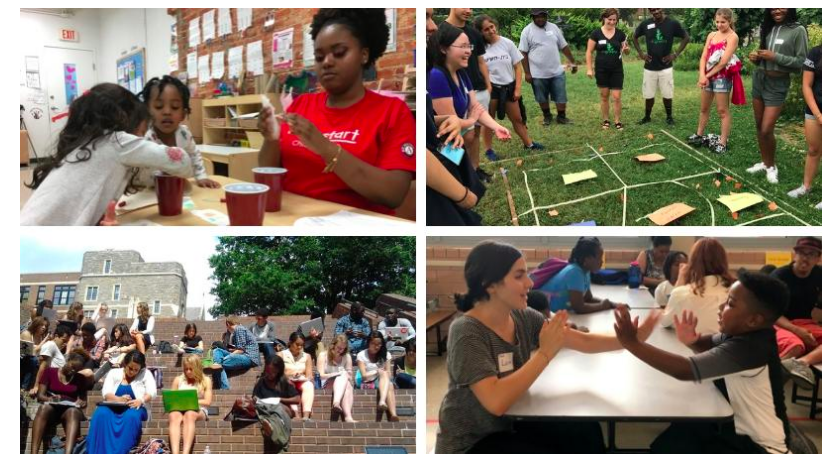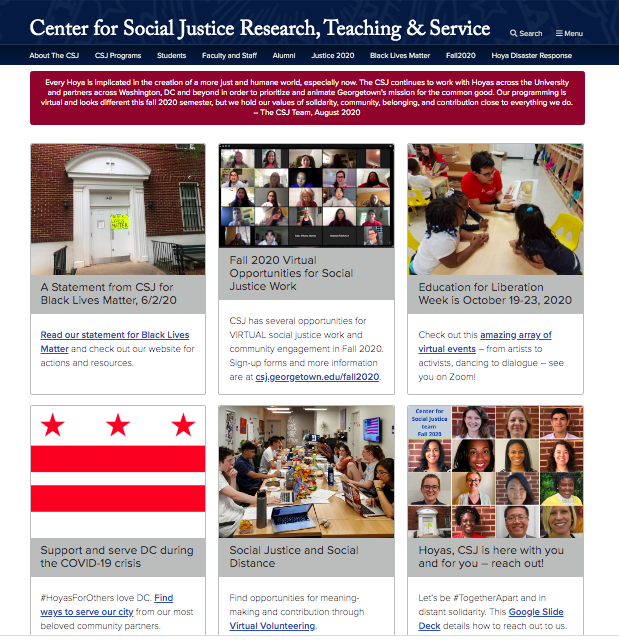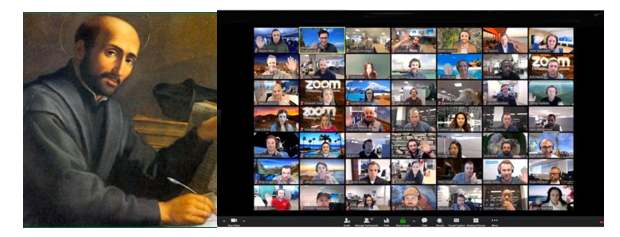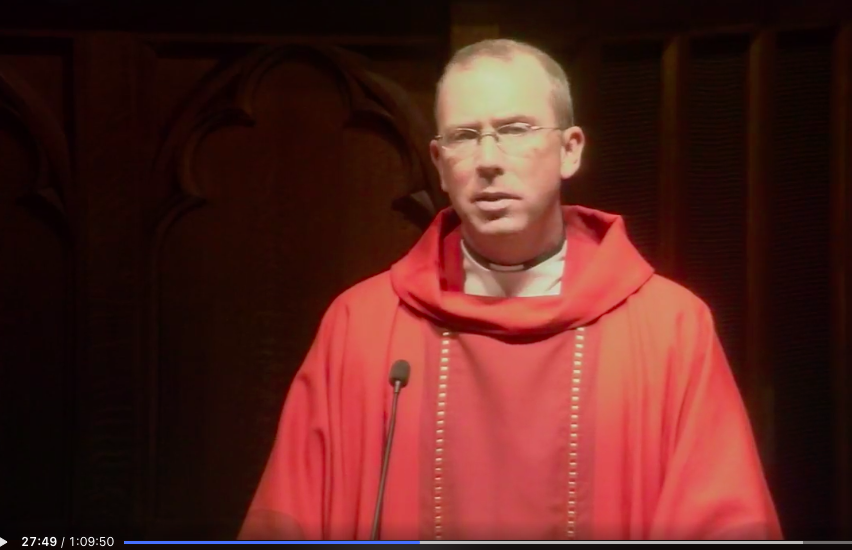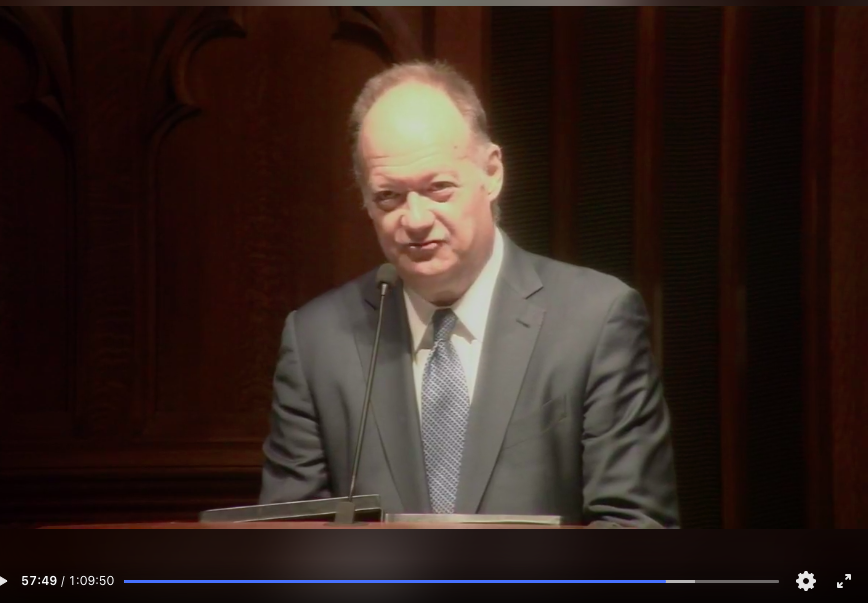In this week’s Mission in Motion, we spend some time with Tremell Horne, program coordinator for the Planning & Development cluster at SCS. Tremell came to Georgetown in fall 2016, making a quick impact on the life of the community with his creative approach to program communications. During his time at SCS, Tremell has sought ways to develop both personally and professionally and realized his goal of receiving a master of professional studies degree in Sports Industry Management in 2019. In this interview, Tremell reflects on how he brings Georgetown’s Jesuit values into his work and how he has made the most of his gifts to be of service to others in need during the pandemic.
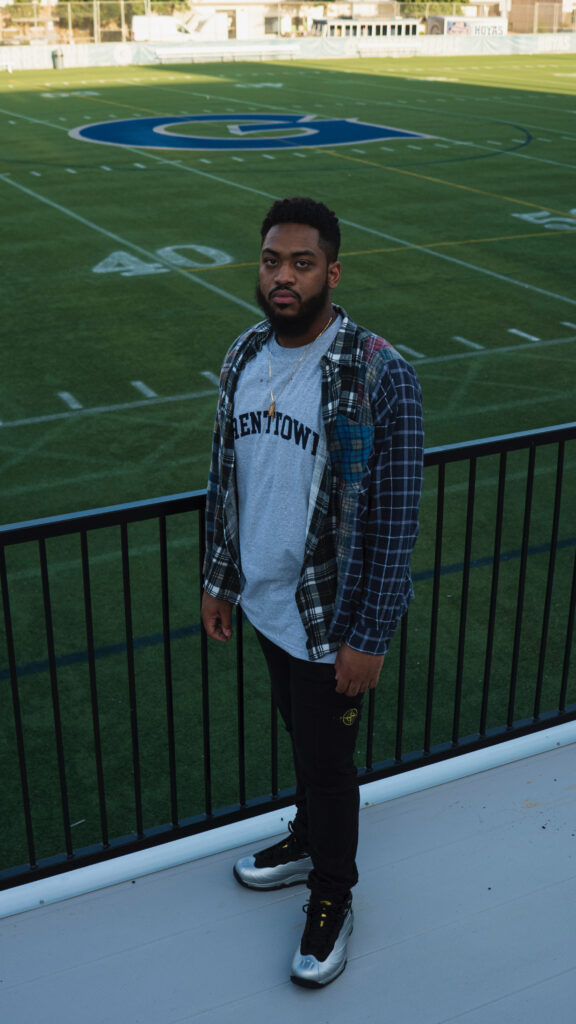
Can you tell us about your role at Georgetown SCS? Are there particular ways that you bring some of our Spirit of Georgetown values to life in your work?
I jokingly refer to my role here at SCS as the “fixer.” I am technically a program coordinator but I wear many hats. When I first started at Georgetown I was mainly focused on communications. This snowballed into marketing, course scheduling, event management, and advising. Now I pretty much do a little bit of everything while fixing what I can along the way. Cura Personalis has been at the core of my advising strategy when dealing with my students. It’s important to let every individual feel heard and appreciated. The circumstances that bring students my way does not always lead to happy conversations. I have a unique role that falls in between the grey area of customer service and following strict policies. Each person has a story, a family, and problems of their own. Often times my advising calls get derailed because a student just needs someone to talk to. I’m fine with it. Those conversations bring out the humanity in us in a setting that is very formal and transactional.
How are you doing these days? Have you found practices to stay centered, healthy, and inspired in these challenging times?
I am okay. Work has been stressful at times during the pandemic, especially on a small team. My supervisor has really helped support me. He just reassured me that I was doing fine and everyone is adapting to this new way of life with COVID. He said, “Do what you can and when the day is over LOG OFF.” It’s hard to disconnect especially when working from home.
An escape for me has been volunteering. For the last few months I have been volunteering with Dreaming Out Loud. They have a small farm in North East DC. I find that a hard day’s work on the farm can really help reset my mind and body. We are tasked with weeding, planting, and composting. The farm at Kelly Miller Middle school uses 100% sustainable practices. This means no pesticides, no chemicals, and no short cuts. It’s hard work. Very hard work. But it has been nice to get outside and get dirty every few weeks.
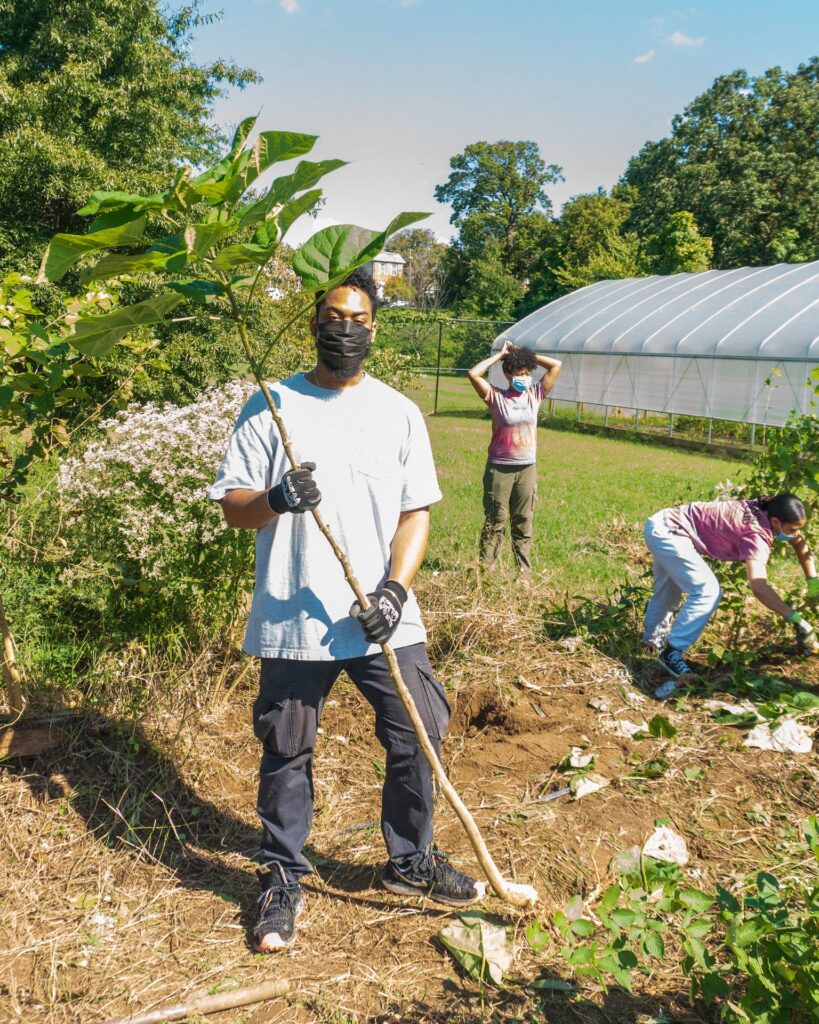
I understand that you have been committed during this pandemic to using your gifts and talents to support those in need. Can you let us know about that work and what inspired you to serve marginalized persons and communities in this way?
Dreaming Out Loud’s mission is to create economic opportunities for the DC metro region’s marginalized community members through building a healthy, equitable food system. We take food for granted. My Dad always says food is love. To eat a healthy meal with family is a blessing. Many inner-city families live in food deserts. We are privileged to frequent Trader Joe’s and Whole Foods for our favorite snacks.
Dreaming Out Loud gives low income families access to fresh produce. Many of the families receive this produce at no cost! At a time where COVID has displaced families and people have lost their jobs, DOL has provided a healthy food option for many in need.
I have a symbiotic relationship with volunteering. It allows me to get dirty and exert some physical energy after being cooped up in my apartment. I have been struggling with an irregular sleep pattern lately. A hard day equals a good night’s sleep. I also get fresh fruits and veggies sometimes for helping out on the farm. At the same time, I am helping families during these strange times where a little bit of kindness goes a long way.
Is there any advice that you want to share?
Ok…
Enough of the mushy stuff! My advice to anyone reading this is to get outside! Go for a walk! Get some fresh air! Close your computer and ignore those emails until tomorrow! LOG OFF. If anyone asks, tell them that my supervisor said it’s ok.
Please feel free to shoot me an email if you are interested in volunteering with Dreaming Out Loud! tjh101@georgetown.edu

